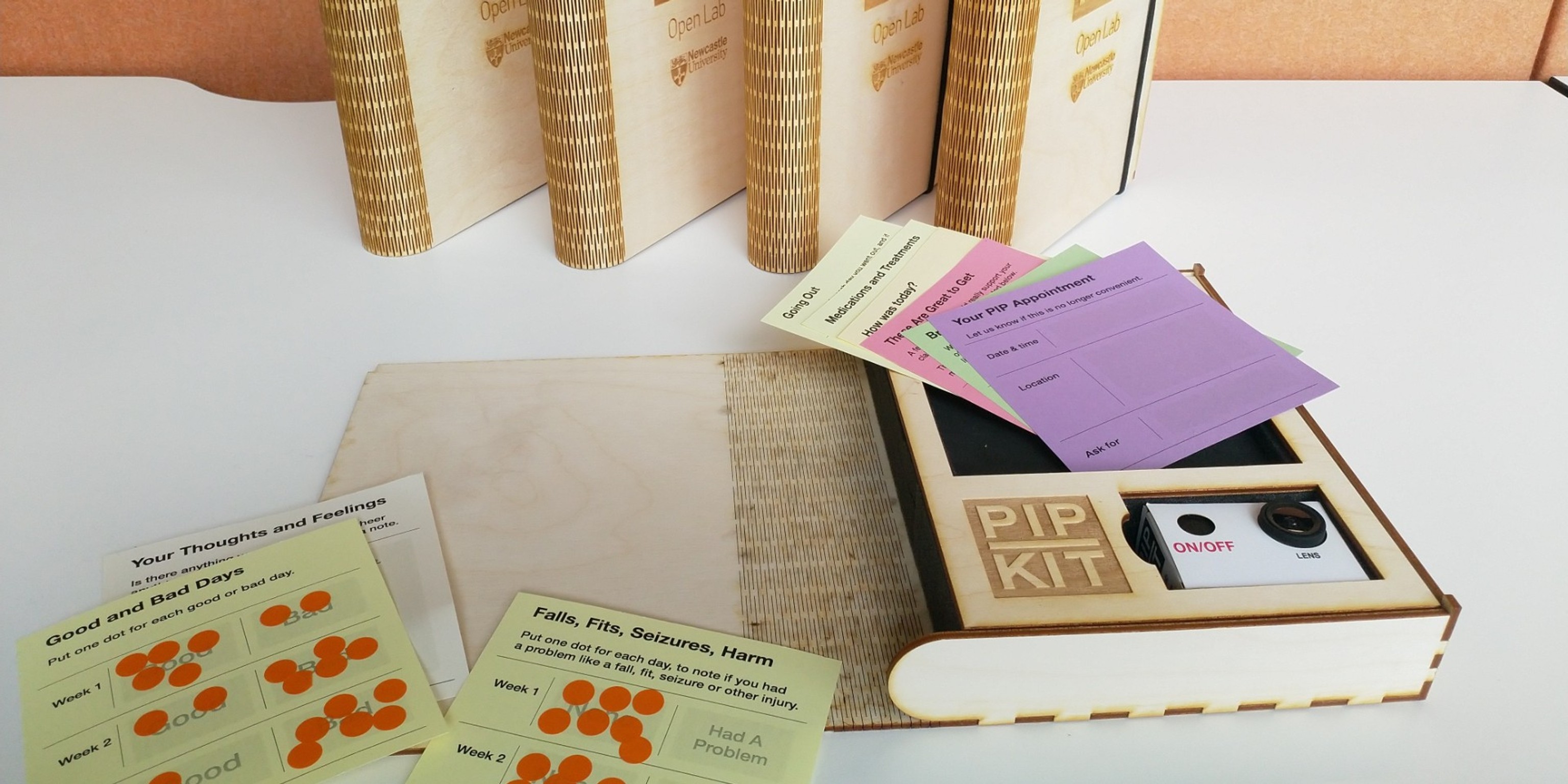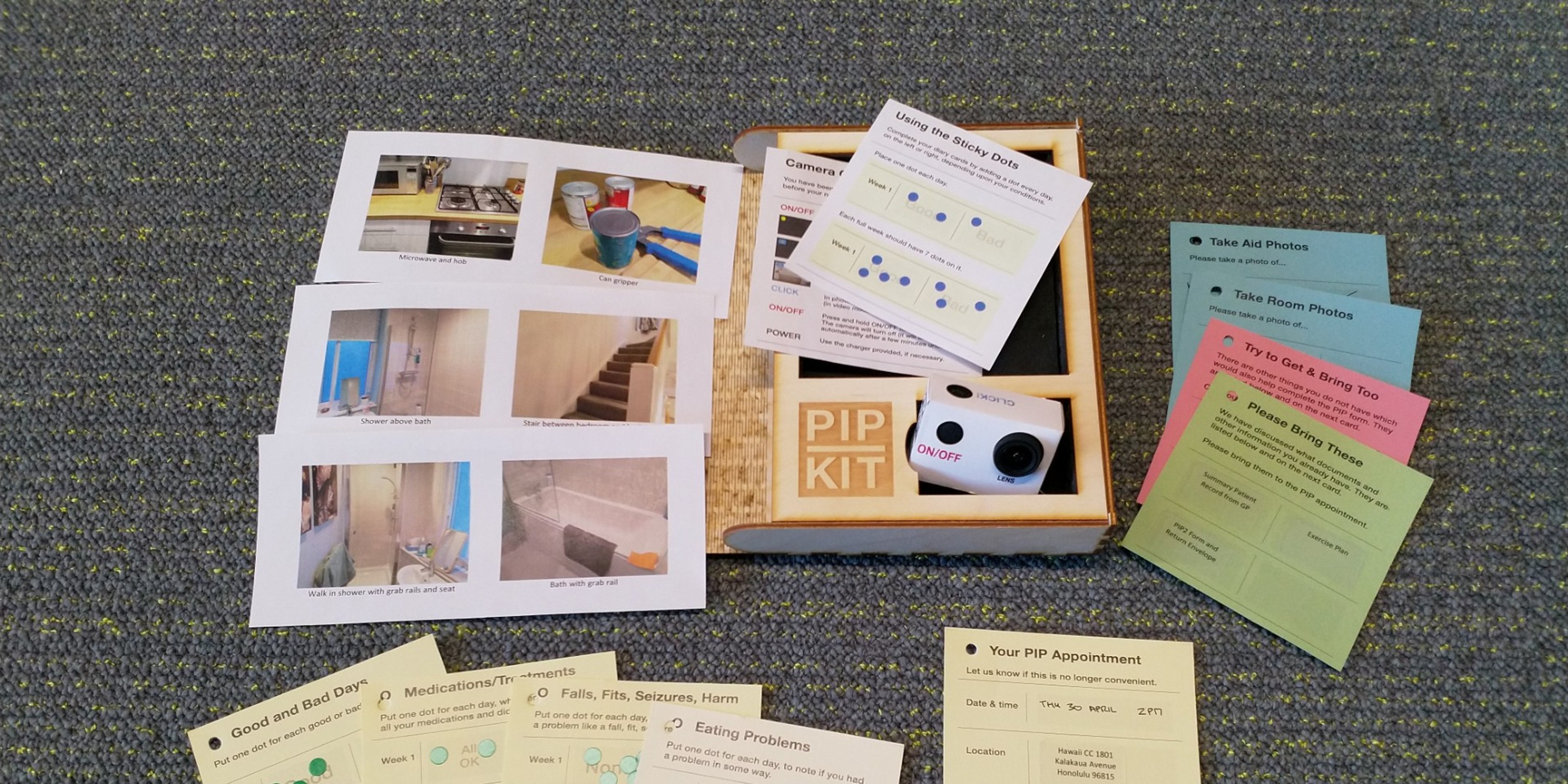
PIP Kit: Using lifelogging to support disability benefit claimants
Digital Social Innovation



Collaborators Shelter
Abstract
We explore how lifelogging could help address the challenges claimants have in accessing disability benefits.
Method
We co-created PIP Kit, a diary to help disability claimants articulate their experiences for their Personal Independence Payment (PIP) assessment.
Takeaways
PIP Kit helped empower claimants in understanding the claim process and assisted in building arguments for their claims.
Disability welfare benefit processes are complex and stressful, with claimants finding it challenging to prepare an effective account of their disabilities to support their claim. This project focuses on a disability benefit called Personal Independence Payment (PIP), which is received by millions of people with disabilities in the UK.
We present a multi-stage exploratory investigation into how lifelogging could help address the challenges claimants have in accessing disability benefits. In the first study, benefit advisors participated in interviews and workshops to inform the design of PIP Kit, a highly customisable prototype elicitation diary to help disability claimants articulate their experiences.
In the second study, PIP Kit was trialled by benefit claimants whilst making their actual PIP claims. We found that PIP Kit helped empower claimants in understanding the claim process and assisted in building arguments for their claims. We also have identified clear principles for supporting disability benefit claimants with technological interventions.

How it works
PIP Kit could be used completely online and was also available physically, which came in a wooden box, had four primary functions:
- Daily diary record-keeping looking at areas such as: good and bad days, washing/bathing problems and falls, fits and seizures
- Photographic evidence gathering - using a low-cost digital camera
- Documenting supporting information requirements for the form-completion appointment, and its scheduled date and time
- Reminders to complete the diary, take photos, gather supporting evidence and attend the appointment.